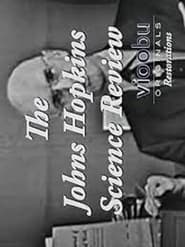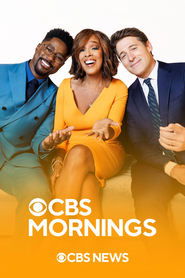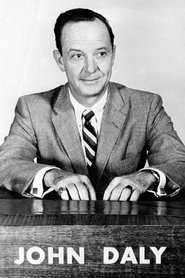Cbs TV Series - Page 65
-
Bicentennial Minutes
0000
star 7.5Bicentennial Minutes was a series of short educational American television segments commemorating the bicentennial of the American Revolution. The segments were produced by the CBS Television Network and broadcast nightly from July 4, 1974, until December 31, 1976. The segments were sponsored by Shell Oil Company. The series was created by Ethel Winant and Louis Friedman of CBS, who had overcome the objections of network executives who considered it to be an unworthy use of program time. The producer of the series was Paul Waigner, the executive producer was Bob Markell, and the executive story editor and writer was Bernard Eismann from 1974 to 1976. He was followed by Jerome Alden. In 1976, the series received an Emmy Award in the category of Special Classification of Outstanding Program and Individual Achievement. It also won a Special Christopher Award in 1976. The videotaped segments were one minute long and were broadcast each night during prime time hours, generally at approximately 8:57 P.M. Eastern time. -
Child's Play
0000
star 1Child's Play is an American television game show in which adult contestants tried to guess words based on definitions given by children. The Mark Goodson-produced series debuted on CBS from September 20, 1982 at 10:30 am Eastern/9:30 am Central. That time slot was held by Alice for a little over two years. Child's Play was never able to make ratings headway against either Wheel of Fortune or Sale of the Century, two hit game shows that NBC aired opposite it; CBS ended the series on September 16, 1983 and replaced it with Press Your Luck, which performed much better for CBS. Perhaps the first inklings of the format appeared on a 1967 episode of Goodson-Todman's earlier series I've Got a Secret, on which guest Woody Allen read children's definitions of words for the panel to guess. Child's Play host Bill Cullen was a member of that series's panel. -
The Johns Hopkins Science Review
0000
The Johns Hopkins Science Review is a US television series about science that was produced at Johns Hopkins University from 1948-1955. Starting in 1950, the series aired on the DuMont Television Network until the network's demise in 1955. The series' creator was Lynn Poole, who wrote or co-wrote most of its episodes and acted as the on-camera host. In 2002, Patrick Lucanio and Gary Coville wrote that, "In retrospect, Lynn Poole created one of those unique series that allowed television to fulfill its idealized mission as both an educational and an entertainment medium." The original series was followed by three related series produced by Poole at Johns Hopkins University: Tomorrow, Tomorrow's Careers, and Johns Hopkins File 7. Johns Hopkins University ended its production of television series in 1960. -
Wesley
1949
Wesley
1949
Wesley is an early American sitcom that aired live on CBS from May 8, 1949 to August 30, 1949. -
West 57th
0000
West 57th
0000
West 57th is a newsmagazine series which aired on CBS from August 13, 1985, through September 9, 1989.West 57th originally premiered as a summer series, and took its name from the New York address of the CBS Broadcast Center. The original correspondents were Jane Wallace, Bob Sirott, Meredith Vieira, and John Ferrugia. Later contributors included Steve Kroft, Selina Scott, Karen Burnes, and Stephen Schiff. The style of the program was intended to use the contemporary tools of television to tell compelling stories. The show's popularity, a concern for Hewitt, prompted 60 Minutes pundit Andy Rooney to dedicate one of his closing segments on his program to a parody of West 57th correspondents. After the cancellation, the show was replaced by the short-lived Saturday Night with Connie Chung. Vieira and fellow correspondent Steve Kroft transferred to 60 Minutes, where Kroft currently remains. Vieira went on to anchor NBC's Today Show. Sirott moved to Chicago to continue a successful career in local TV and radio. John -
Mary Kay and Johnny
1947
Mary Kay and Johnny
1947
Mary Kay and Johnny is an American situation comedy starring real-life married couple Mary Kay Stearns and Johnny Stearns. It was the first sitcom broadcast on a network television in the United States. Mary Kay and Johnny initially aired live on the DuMont Television Network before moving to CBS and then NBC. -
Tales of the Texas Rangers
0000
star 8Tales of the Texas Rangers is a western old-time radio drama, which aired on NBC from July 8, 1950 to September 14, 1952, and thereafter a 52-episode CBS television series broadcast on Saturday mornings from 1955 to 1958. Film star Joel McCrea voiced the radio version as the fictitious Texas Ranger Jayce Pearson, who uses the latest scientific techniques to identify criminals. His faithful horse, Charcoal, helps Pearson to track down the culprits. The radio shows, some of which are available on the Internet, are reenactments of actual Texas Ranger cases. The television version was produced and also directed for several episodes by Stacy Keach, Sr. It was sponsored for part of its run by Wheaties cereal. Captain Manuel T. "Lone Wolf" Gonzaullas, who was said to have killed thirty-one men during his 30-year career as a Texas Ranger, was the consultant for the television series, filmed by Screen Gems. On radio, Joel McCrea's Pearson often worked by request with a local sheriff's office or police department, but in t -
DMV
0000
DMV
0000
A single camera workplace comedy set at the place everyone dreads going most: the DMV. Our quirky and lovable characters are making minimum wage, doing a thankless job where customers are annoyed before they even walk in the door. Good thing they have each other. -
Waterfront
0000
Waterfront
0000
Waterfront is a television drama set in Providence, Rhode Island that was originally scheduled to be a midseason replacement on CBS in 2007, but was shelved by the network in 2006 before any of its five completed episodes had aired. The series was produced by Warner Bros. Television. It starred Joe Pantoliano and William Baldwin as the Mayor of Providence and Attorney General of Rhode Island, respectively. -
Blackout
0000
Blackout
0000
Blackout is an American game show that aired on CBS from January 4 to April 1, 1988. The pilot was hosted by former Entertainment Tonight anchor Robb Weller, but he was replaced for the series by Bob Goen. Johnny Gilbert was announcer for most of the run, with Jay Stewart taking over for the last two weeks. The show was a Jay Wolpert production. -
Cartoon All-Stars to the Rescue
1990
star 10Cartoon All-Stars to the Rescue is an American animated drug prevention television special starring many of the popular cartoon characters from American weekday, Sunday morning and Saturday morning television at the time of this film's release. Financed by McDonald's and Ronald McDonald Children's Charities, the special was originally simulcast on April 21, 1990 on all four major American television networks: ABC, NBC, FOX and CBS, and most independent stations, as well as various cable networks. McDonald's also distributed a VHS home video edition of the special, produced by Buena Vista Home Video, which opened with an introduction from President George H. W. Bush, and First Lady Barbara Bush. The show was produced by the Academy of Television Arts & Sciences Foundation and Southern Star Productions, and was animated overseas by Wang Film Productions Co., Ltd.. The musical number "Wonderful Ways to Say No" was written by Howard Ashman and Alan Menken, who also wrote the songs for The Little Mermaid, Beauty and the -
Extraordinary World With Jeff Corwin
2025
Host Jeff Corwin teams up with everyday people who are making an extraordinary impact on the world through animal advocacy, wildlife conservation, youth empowerment and aiding those dealing with food insecurity issues. -
Mowgli's Brothers
0000
star 8Mowgli's Brothers is a 1976 television animated special created by legendary animator Chuck Jones. It is based from the first chapter of Rudyard Kipling's The Jungle Book of the same name. The special was narrated by Roddy McDowall who does all the male characters in the film. It originally aired on CBS on February 11, 1976. The special was released on VHS by Family Home Entertainment in 1985 and in 1999 and released on DVD by Lionsgate. -
CBS Mornings Plus
2024
-
Frontier Justice
1958
star 5Frontier Justice is a CBS television Western anthology series which had thirty-one telecasts over the summers of 1958, 1959, and 1961. It was a repackaging of episodes from CBS's Dick Powell's Zane Grey Theater, and was hosted by Lew Ayres, Melvyn Douglas, and Ralph Bellamy, one each summer. The program was a production of Four Star Television. Starring in various episodes were Eddie Albert, Phyllis Avery, Russ Conway, John Derek, William Fawcett, Dean Jagger, David Janssen, Ida Lupino, Strother Martin, Jack Palance, John Payne, Judson Pratt, Denver Pyle, Robert Ryan, Stuart Whitman, and James Whitmore, among others. The half-hour, black-and-white program, a summer-replacement series, debuted on Monday, July 7, 1958, and ended its run on Thursday, September 28, 1961. It was produced by Four Star Television, co-owned by Dick Powell, David Niven, Charles Boyer, and Ida Lupino. -
The Brighter Day
0000
The Brighter Day
0000
The Brighter Day is an American daytime soap opera which aired on CBS from January 4, 1954 to September 28, 1962. Originally created for NBC radio by Irna Phillips in 1948, the radio and television versions ran simultaneously from 1954-1956. Set in New Hope, Wisconsin, the series revolved around Reverend Richard Dennis and his four children, Althea, Patsy, Babby and Grayling. The Brighter Day was the first soap opera to air on network television with an explicitly religious theme. Another soap opera created by Phillips, The Guiding Light, initially had a religious theme as a radio show but dropped it by the time the series moved to television. -
It's News to Me
0000
It's News to Me
0000
It's News to Me is a weekly panel game show produced by Mark Goodson and Bill Todman for CBS Television. It was a derivative of Goodson-Todman's own panel show What's My Line?. Originally aired as a one-time special on May 11, 1951; It debuted as a series July 2, 1951 and ran until September 12, 1953. The show returned July 9 – August 27, 1954 as a summer replacement for Person to Person.




